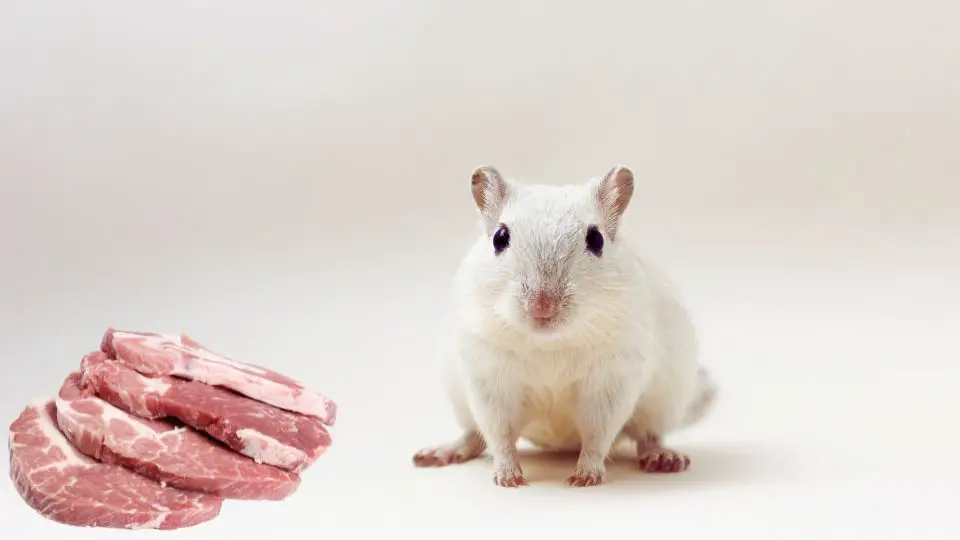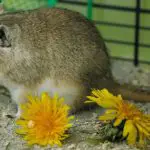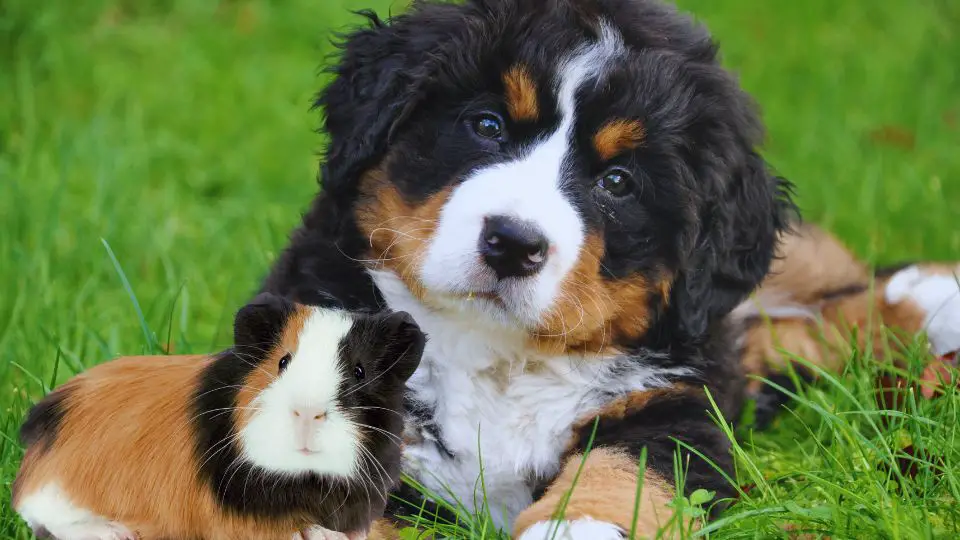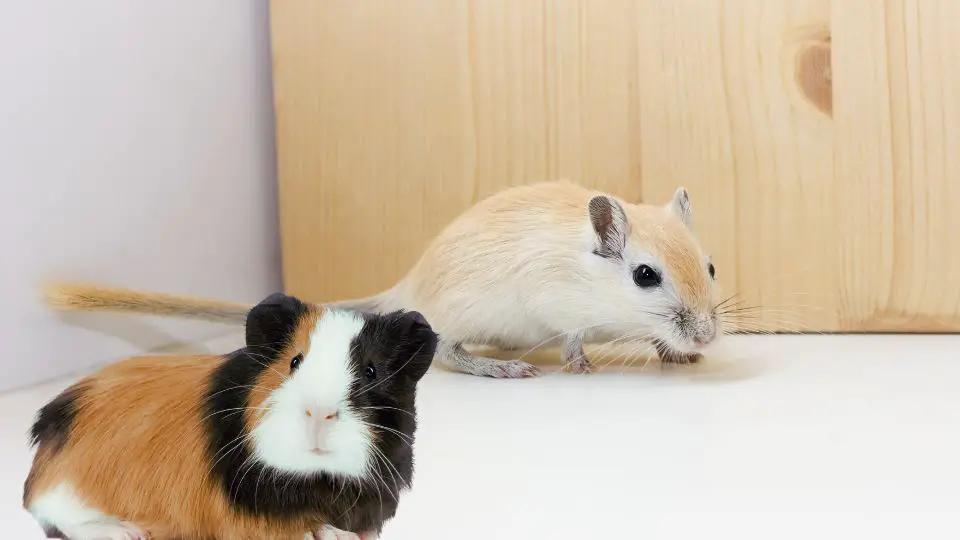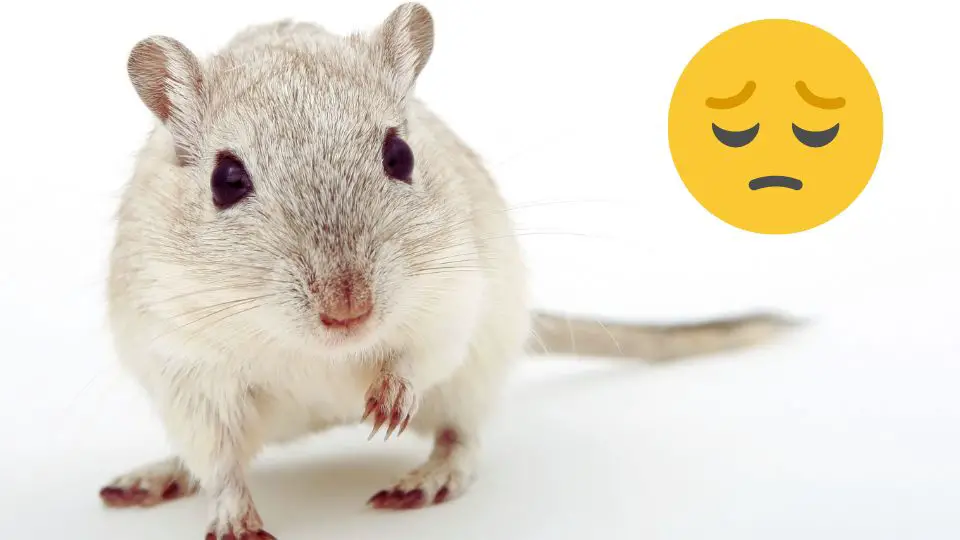Gerbils are known for their herbivorous nature, primarily consuming plant-based foods. However, the question often arises: Can gerbils eat meat?
Yes, gerbils can eat small amounts of lean, cooked meat as an occasional treat. However, their primary diet should consist of high-quality gerbil pellets, fresh vegetables, and occasional treats specifically formulated for gerbils.
In this article, we will explore the topic of whether gerbils can include meat in their diet.
Gerbil’s Natural Diet and Digestive System
Gerbils, with their captivating charm and lively nature, have specific dietary needs that are rooted in their natural diet in the wild.
Gerbils are small desert-dwelling rodents that primarily inhabit arid regions. In the wild, their diet mainly consists of plant-based foods. They forage for seeds, grains, grasses, and plant matter, deriving their nutrients from these sources. Their natural environment provides them with a diverse array of vegetation, allowing them to meet their nutritional requirements.
Structure and Function of a Gerbil’s Digestive System
The digestive system of gerbils is specialized to efficiently process their natural diet. Here’s an overview of their digestive system:
- Teeth and Jaw Structure: Gerbils have sharp incisors and strong jaw muscles that help them gnaw through seeds and grains, extracting the nutrients inside.
- Stomach and Digestive Enzymes: Gerbils have a simple stomach that secretes gastric juices and enzymes to break down food further. However, their stomach acid is not as strong as that of carnivorous animals.
- Long Intestine: Gerbils have a relatively long and complex intestinal tract to facilitate the digestion and absorption of nutrients from plant-based foods. This allows for efficient extraction of energy and nutrients from their diet.
- Coprophagy: A unique aspect of a gerbil’s digestive system is coprophagy, the consumption of their own feces. They produce soft, nutrient-rich droppings called cecotropes, which they consume to gain additional nutrients and aid in digestion.
Meat in a Gerbil’s Diet
Meat is a rich source of protein, essential amino acids, and certain vitamins and minerals. Protein is vital for a gerbil’s growth, tissue repair, and overall well-being. Including a small amount of lean, cooked meat in their diet can provide additional protein and certain nutrients that may contribute to their overall nutritional profile.
Risks and Considerations of Feeding Meat to Gerbils
While there are potential benefits, there are also several important considerations and risks associated with feeding meat to gerbils:
- Digestive System Adaptation: Gerbils have a specialized digestive system designed to process a plant-based diet. Introducing meat can put strain on their digestive system and may cause digestive issues or upset their delicate balance.
- High Fat Content: Meat, particularly fatty cuts, can be high in fat content. Gerbils have specific dietary requirements and are susceptible to health problems related to obesity. Feeding meat with high fat content in excess can lead to weight gain and associated health issues.
- Potential for Bacterial Contamination: Raw meat carries a higher risk of bacterial contamination, which can be harmful to gerbils. It is crucial to thoroughly cook any meat offered to gerbils to eliminate the risk of foodborne illnesses.
- Nutritional Imbalance: While meat can provide certain nutrients, it may not offer a well-rounded nutritional profile that meets all of a gerbil’s dietary needs. A balanced diet primarily consisting of high-quality gerbil pellets, fresh vegetables, and occasional treats ensures a comprehensive range of essential nutrients.
Recommended Diet for Gerbils
A well-balanced and appropriate diet is essential for the overall health and well-being of gerbils. Providing them with the right nutrition ensures that they receive the necessary nutrients for growth, energy, and maintaining a healthy body.
High-Quality Pellets
A staple component of a gerbil’s diet should be high-quality gerbil pellets. These pellets are specifically formulated to meet the nutritional needs of gerbils and provide essential nutrients such as protein, fiber, vitamins, and minerals. Look for pellets that are specifically designed for gerbils and avoid those intended for other species, as the nutritional requirements may differ.
Fresh Vegetables
Fresh vegetables should be part of a gerbil’s diet as they provide additional vitamins, minerals, and fiber. Leafy greens like spinach, kale, and romaine lettuce are excellent choices. Other suitable vegetables include carrots, bell peppers, broccoli, and cucumber. Introduce a variety of vegetables gradually to ensure your gerbil tolerates them well, and always wash them thoroughly before serving.
Occasional Treats
Occasional treats can be given to gerbils to provide enrichment and variety in their diet. Treats should be given sparingly to avoid overindulgence and potential health issues. Suitable treats for gerbils include small amounts of fruits like apple, pear, or melon (without seeds), as well as gerbil-specific treats available in pet stores. Remember, treats should only make up a small portion of their overall diet.
Gerbil Diet with Meat
Please note that while gerbils are primarily herbivorous animals and their diet should consist mainly of plant-based foods, some owners may choose to include small amounts of lean, cooked meat as an occasional treat. It is crucial to understand the risks and considerations associated with feeding meat to gerbils before making this decision.
If you decide to offer meat to your gerbil, here is what we think you should keep in mind:
- Thoroughly Cooked: Ensure that the meat is thoroughly cooked to eliminate any potential pathogens or parasites that could harm your gerbil. Raw or undercooked meat should never be given to gerbils.
- Lean Cuts: Opt for lean cuts of meat to reduce the fat content. Remove any skin, bones, or excess fat before offering it to your gerbil.
- No Seasonings or Additives: Do not add any seasonings, spices, sauces, or additives to the meat. Keep it plain and free from any additional ingredients that could be harmful to your gerbil’s health.
If you incorporate meat in your gerbil’s diet, we recommend including a small piece of cooked chicken or a few flakes of cooked fish. These should be offered sparingly and in small quantities, keeping in mind that they should not form a significant portion of your gerbil’s diet.
Again, we want to emphasize that gerbils have specific dietary requirements, and their primary diet should consist of high-quality pellets, fresh vegetables, and occasional treats. A balanced and nutritionally complete plant-based diet is usually sufficient to meet their nutritional needs.
Alternatives to Meat for Protein
There are several protein-rich foods that can be included in a gerbil’s diet to provide the necessary protein without relying solely on meat. Here are some safe and suitable alternatives:
- Insects: Gerbils can consume small amounts of cooked insects as a protein source. Mealworms and crickets, available in pet stores, are often favorites among gerbils. Ensure that the insects are specifically intended for animal consumption and free from any pesticides or harmful additives.
- Seeds and Nuts: Seeds and nuts can also contribute to a gerbil’s protein intake. Examples include pumpkin seeds, sunflower seeds, flaxseeds, and almonds. However, you should offer them in moderation as they are high in fat content.
- Legumes: Legumes such as lentils, chickpeas, and beans are protein-rich options that can be included in a gerbil’s diet. These can be cooked and offered in small amounts as a protein source.
While protein is essential, you have to provide a varied diet to meet all of a gerbil’s nutritional needs. Offering a diverse range of foods ensures a broader spectrum of nutrients, including amino acids, vitamins, and minerals. A varied diet helps prevent nutritional deficiencies and supports overall health.
By including a variety of protein sources along with high-quality gerbil pellets and fresh vegetables, you can ensure that your gerbil receives a well-rounded nutritional profile. Rotating protein sources and introducing new foods gradually will help prevent monotony and encourage your gerbil to explore different tastes and textures.
FAQ
Can you give gerbils human food?
While gerbils have specific dietary needs, there are some human foods that are safe for them to eat in moderation. However, you have to be cautious and selective with the foods you offer. Stick to gerbil-specific treats or safe options like small amounts of fruits and vegetables. Avoid foods that are high in sugar, salt, fat, or contain harmful additives.
What real food can gerbils eat?
Gerbils can eat a variety of real foods as part of their diet. Safe options include fresh vegetables like spinach, kale, carrots, and bell peppers. They can also enjoy small amounts of fruits like apples, pears, and melons (without seeds). It’s essential to introduce new foods gradually and observe how your gerbil responds to them.
What insects can gerbils eat?
Gerbils can eat small amounts of cooked insects as a protein source. Safe options include mealworms and crickets, which are widely available in pet stores. Always ensure that the insects are specifically intended for animal consumption and free from any pesticides or harmful additives.
Do gerbils eat chicken?
While gerbils are primarily herbivorous animals, some owners may choose to offer small amounts of lean, cooked chicken as an occasional treat. Ensure that the chicken is thoroughly cooked, free from seasonings or additives, and offered in moderation. Remember that meat should not make up a significant portion of a gerbil’s diet, and a balanced plant-based diet is generally recommended for their overall health.
Conclusion
In conclusion, while gerbils are primarily herbivorous animals, the topic of whether they can eat meat raises important considerations. While it is possible to offer small amounts of lean, cooked meat as an occasional treat, it is essential to understand the associated risks and limitations.
A gerbil’s diet should primarily consist of high-quality pellets, fresh vegetables, and occasional treats specifically formulated for gerbils.

